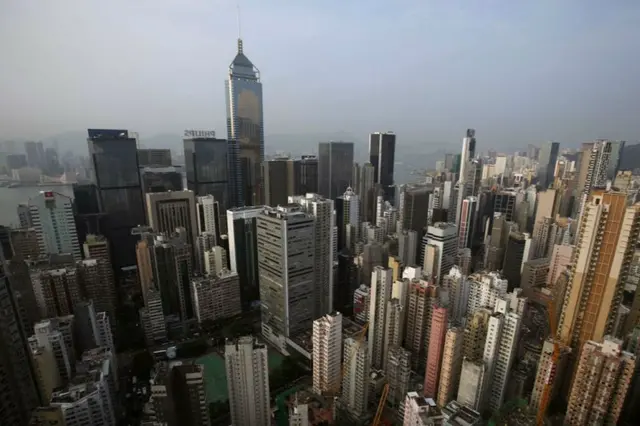Hong Kong has retained its No 1 ranking globally in office leasing rates, and is set to keep hold of its title as the world’s most expensive for the next few years, according to a report released Thursday.
Hong Kong ranked on top in a survey of 31 cities around the world, with prime office space leasing for an average of US$278.5 per square foot per annum, according to Knight Frank’s Skyscraper Index, which compiled figures the 9-month period ended June 30.
It’s the second year running that Hong Kong has come out on top of the Knight Frank index, which debuted in 2015.
Office lease rates in the city are 76 per cent higher than runner up Manhattan, New York, where top-grade office space fetches an average of US$158 per square foot per annum.
Tokyo, London and San Francisco rounded out the top five places, while Shanghai and Beijing rounded out the top 10. Shanghai experienced the strongest growth in office rental rates in the first six months of the year.
Mainland Chinese companies expanding into Hong Kong were the main factor pushing up prices, as they made up 64 per cent of all prime office leasing transactions, the report said.
“Going forward, Mainland Chinese firms entering Hong Kong will be the key demand driver,” the report said.
“Hong Kong is increasingly being used as the first stop for Chinese outbound capital and a springboard to world markets.”
Hong Kong was likely to retain the highest prime office rents for the next three-to-five years owing to its huge lead and the consistent demand for space from new companies setting up shop in the city, Knight Frank senior director Thomas Lam said.
Hong Kong’s rents are forecasted to increase between 2 and 5 per cent next year, and 4.5 per cent from the end of last year to the end of 2019.
By 2020, Hong Kong was likely to face an office space shortage of around 2 million square feet - equivalent to Hong Kong’s 88-storey Two International Finance Centre, the report found.
Other Asia-Pacific cities are likely to see faster growth in leasing rates over the period, with Sydney and Shanghai to gain 27.5 and 19.2 per cent growth respectively, according to the report.
(SOUTH CHINA MORNING POST)
 简体中文
简体中文

